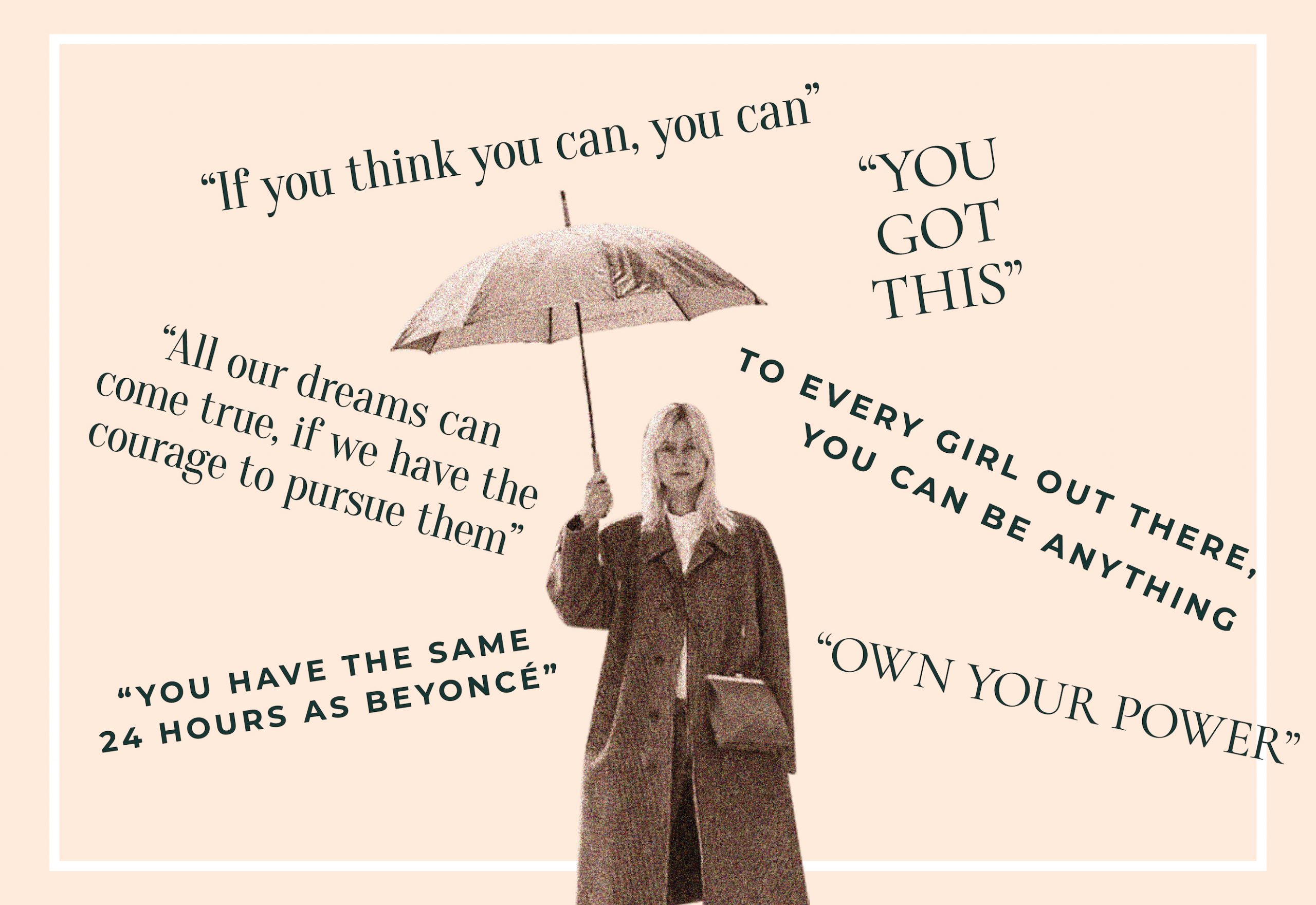I can still remember the first time I read an inspirational quote. It changed my life, though only in the sense that I was suddenly aware of the existence of inspirational quotes.
It was the mid 1990s and my friend’s mother had plastered aphorisms on every square inch of their apartment. (Picture Russell Crowe’s flat from ‘A Beautiful Mind’ but with Louise Hay maxims in place of mathematical equations.) “The point of power is always in the present moment,” beamed a post-it beside the bathroom mirror. “Every thought we think is creating our future,” offered another square beneath the light switch. “Everyone is responsible for everything in their lives, the best and the worst,” declared the TV remote.
At the time, I couldn’t comprehend it. Why would anyone need to re-read a thought or belief, when they could simply think or believe it? But Hay, the beatific founding mother of self-help, was onto something.
‘The point of power is always in the present moment,’ beamed a post-it by the mirror
These days, motivational quotes aren’t hidden inside our apartments, they’re everywhere: scrawled on coffee shop blackboards, printed on tote bags, embossed on coffee mugs, and of course, plastered across Instagram, where #instaquotes has racked up 11.4 million posts. Whether they’re the words of Nelson Mandela, Marilyn Monroe, Gandhi – or more likely, some less famous person whose sound bites have been falsely attributed – it’s difficult to make it through the day without being reminded to shoot for the moon, be the change we wish to see, or that we “got this”.
The benefits of these quotes may seem self-evident: mantras, visualisation and “self-talk” have been used by top-performing athletes since at least the 1970s (shout out to Andy Murray and his delightfully absurd “be intense with your legs”.)
But some experts now believe that endless positivity can have surprisingly negative effects. Psychologist Melissa Weinberg from Deakin University’s School of Psychology suggests that when people with low self-esteem recite affirmations, it only highlights the chasm between what they’re reading and what they’re feeling – and may actually make them feel worse.
It’s difficult to make it through the day without being reminded that we ‘got this’
Mental health aside, inspirational memes reinforce a slightly insidious notion that with enough hard work, dedication and sunset-tinged yoga sessions, we can achieve anything. This is a useful narrative when we’re running low on caffeine at 4pm on Friday afternoon, but in the long-term it can make us feel deeply inadequate. If success is earned, then so is failure – or worse, mediocrity – an assumption that conveniently overlooks a broad spectrum of social, cultural and economic barriers that exist, and not just in our minds.
While it’s technically true that you “have the same number of hours in each day as Beyoncé”, it’s very unlikely that you have the same control over how you spend them. This kitten trapped inside a Tesla has the same minutes per hour as Elon Musk but it doesn’t mean that he could run SpaceX if only he woke up earlier and believed in himself.
Oddly enough, some psychologists even suggest that reading motivational quotes can hinder productivity by triggering the same feel-good endorphins as actually finishing the job, prompting us to procrastinate. So why has #inspo become so inescapable?
It could be that in uncertain times, people hanker for a sense of control over their lives, or maybe we’ve always been drawn to the wisdom of our idols. Jessica Rohlfing Pryor, a researcher at the Family Institute at Northwestern University, says there’s more societal pressure to strive for perfection than in previous decades – and according to this study published last year, millennials are certainly feeling it.
Some perfectionists are adaptive and are able to take set-backs in their stride. But others are maladaptive, spiralling into shame and humiliation when they fall short. Rohlfing Pryor told The Lily that social messaging around perfectionism is so strong that even if we don’t aspire to these rigorous standards ourselves, we want people to believe that we do – so we hit the ‘like’ or ‘share’ button on a soundbite from Steve Jobs before returning to our Netflix marathon and take-out.
If you get something out of inspirational quotes, then that’s great. But if not? Feel free to pass on your Best Life and embrace the Perfectly Okay Life. After all, you might as well be yourself. Everyone else is taken.
Want more stories like this? Sign up to PRIMER’s weekly newsletter here.










No Comments